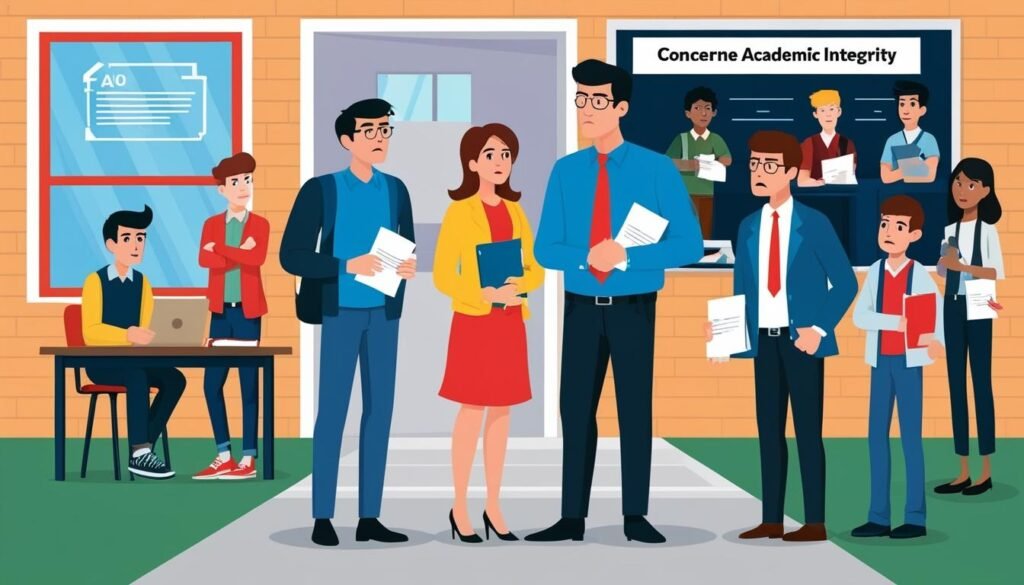A family in Massachusetts is contesting their son’s detention and grade reduction, arguing that unclear AI guidelines in the school handbook led to an unjust cheating accusation.
In Massachusetts, a legal dispute has arisen between a family and Hingham High School, centred around allegations of academic misconduct involving the use of artificial intelligence. The controversy began when Jennifer and Dale Harris, parents of a high school student, claimed that their son was unjustly accused of cheating on a history assignment. According to the Harrises, their son utilised AI as a tool for gathering research but did not rely on it to draft the paper in question.
The incident led to the teenager receiving a detention and a reduction in his grades, which the family argue has had serious repercussions. The most notable impact, according to a federal court filing, is that the allegations could potentially hinder their son’s applications to prestigious universities, given his otherwise outstanding academic and personal achievements. Additionally, it has reportedly prevented him from joining the National Honor Society, an accolade his parents believe he deserves.
The family’s legal filing demands that the school remove any zero-grade impact from the assignment and restore the son’s Social Studies grade to a ‘B.’ Furthermore, they are asking for his immediate retroactive induction into the National Honor Society. The Harrises also highlight the need for clearer guidelines and rules concerning the use of AI in academic work, pointing out that the current school handbook lacks explicit regulations or procedures related to AI use.
The school’s handbook, as examined by ABC News, notes that “unauthorised use of technology, including Artificial Intelligence” could be regarded as cheating or plagiarism. However, it does not specify how AI can be utilised appropriately or the consequences for its use. It defines plagiarism as any unauthorised use or imitation of another’s language or ideas, including AI, if presented as one’s own work.
The handbook mandates that teachers suspecting cheating must award a failing grade for the involved assignment and inform both the parents and assistant principal, who may choose to take further action. In light of this, Jennifer Harris advocates for the development of a comprehensive AI policy that would be clearly communicated to both educators and students.
The filing also suggests that school administrators should undergo professional training on integrating AI into educational settings to prevent similar incidents from occurring. This training, proposed by the Harrises, should be conducted by an external party not employed by the school district.
A spokesperson for the Hingham Public Schools refrained from providing detailed comments on the case, citing privacy concerns and the ongoing nature of the litigation. As this legal battle unfolds, it highlights the broader challenges that educational institutions face in adapting to the rapidly evolving technological landscape and the implications of AI in the academic arena.
Source: Noah Wire Services


